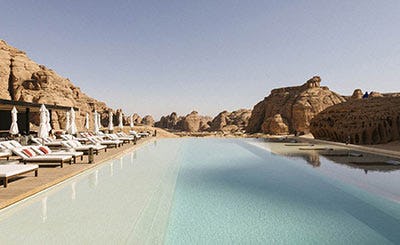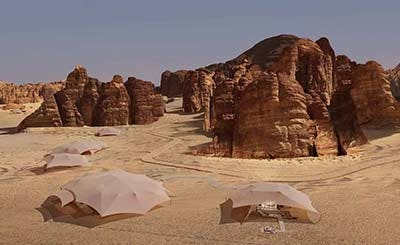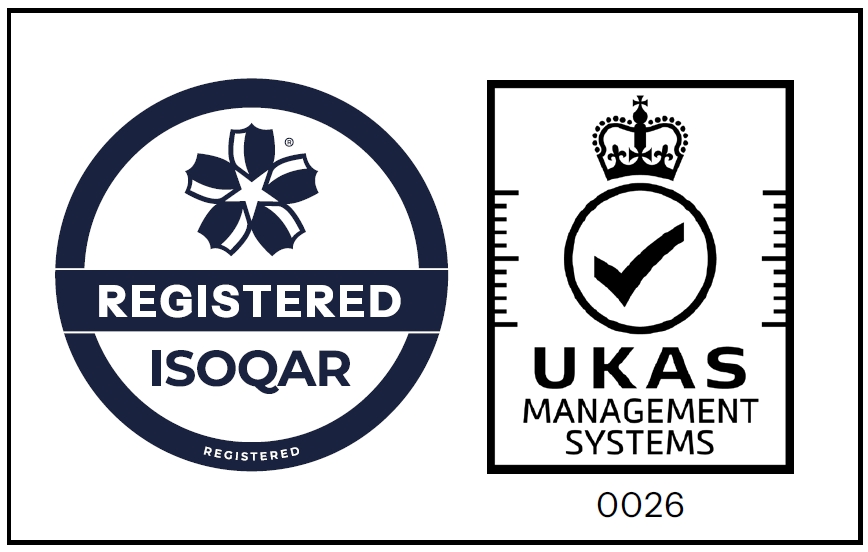Saudi Holidays
Spanning the majority of the Arabian Peninsula, Saudi offers travellers an alluring blend of modern cities, fascinating historic sites and mesmerising desert landscapes. Visitors can tour UNESCO World Heritage Sites such as the Nabataean rock-cut tombs in AlUla and the historic At-Turaif district in Diriyah, capital of the first Saudi state. Those seeking adventure can escape the cities and experience camping and dune bashing in the unending desert dunes of the Rub' al Khali, or the Empty Quarter.
Jeddah
Set on the shores of the Red Sea, the city of Jeddah is the traditional gateway for pilgrims making their way to Makkah. Visitors can explore the UNESCO-listed Al-Balad site, 'Historic Jeddah', with its narrow alleys and beautifully preserved buildings that showcase the city's cultural heritage. Elsewhere, you can wander through the city's fragrant souqs and visit family-friendly attractions including Al Shallal Theme Park and Fakieh Aquarium.
Makkah
Every year, Makkah welcomes millions of Muslims going to Hajj and Umrah. Pilgrims can visit the Masjid Al-Haram, home to the magnificent Kaaba - the holiest site in Islam - and participate in the sacred act of circumambulating the Kaaba. Visitors can ascend Jabal al-Nour and take in panoramic views of Makkah from the Cave of Hira, where the Prophet Muhammad received the first of his revelations.
Riyadh
Saudi's capital is a prosperous business and political centre with some fascinating historical sites, world-class shopping malls and a growing number of modern skyscrapers. Highlights of the city include the impressive Masmak Fortress, the Fahd Grand Mosque and the renowned National Museum. A short drive northwest of the city are the UNESCO-listed ruins of Historical Diriyah, birthplace of the first Saudi State.
AlUla
With its stunning desert landscapes, geological formations and rich archaeological sites, AlUla is fascinating to explore. Once the second city of Nabataean civilisation and an important stop on the ancient spice road, AlUla is steeped in history. Explore monolithic rock-cut tombs at the UNESCO-listed site of Hegra, see ancient rock art and inscriptions at Jabal Ikmah, and camp out under the desert sky amongst towering rock formations in Gharameel.
Red Sea
The Red Sea is a new luxury tourism destination along the west coast of Saudi. Surrounded by the world's fourth-largest barrier reef system, the Red Sea spans over 28,000-square-kilometers with more than 90 untouched islands, pristine beaches, sweeping desert dunes, mountain canyons and historical cultural sites.
-
Visitors should make sure to respect the local laws and customs. Being a Muslim country, Saudi Arabi has strict laws for things such as alcohol, drugs, and clothing, which are important to follow when outside of the resorts and hotels.
-
Women should look to cover their shoulders and knees in locations like shopping malls and cover their hair if visiting a mosque. Headscarves are not compulsory any longer. No dress code exists for children.
-
Ramadan is important religious festival that takes place on different dates each year. Holidays in Saudi are perfectly possible during Ramadan, and you can experience the festivities that take place when Muslims break their fast. Just remember to follow the local etiquette and respect the religious beliefs - do a bit of research before you visit and check with your hotel to stay up to date. Do not have any water or food visible in public during Ramadan time, even in your car, or you risk fines.
-
Gambling is not allowed in Kingdom of Saudi.
-
Alcohol is banned in the Kingdom of Saudi: It is an offence to drink alcohol or be drunk in public. Penalties for the possession of, or trade in alcohol are severe. Both result in prison sentences. Do not arrive in Saudi under the influence of alcohol. Do not bring alcohol into Saudi.
Swearing in public and making rude gestures are considered offensive acts and violators can be subjected to the local laws. Do not play loud music or dance. Look out for the family sections of cafes and restaurants; if you are a male who is alone, don't go in. Saudi law prohibits the importation of weapons, alcohol, narcotics, pork and pork products, pornographic materials, distillery equipment, re-treaded or used tyres, used clothing and certain sculptures.
-
Certain beaches in Jeddah are expat only and you can wear swimwear and shorts. This is not the case in public beaches elsewhere.
-
Shops, cafes, etc. will close for a short while during prayer times. Shops and many services are closed on Fridays, the holy day. The working week is Sunday-Thursday.
-
Be aware of cultural sensitivities. Filming or photographing government buildings, military installations, and palaces is not allowed. Avoid photographing local people. Posting material (including videos and photographs) online that is critical of the Saudi government, or appears to insult/ridicule/criticise the country's culture and belief, the country, authorities, or its culture, may be considered a crime punishable under Saudi law.
-
Visa on Arrival - Travelers need a visa to visit Saudi for Tourism. Travelers can get a visa on arrival in Saudi at the port of entry, such as an international airport or border crossing.
-
Best month to visit are between late October to early April.
-
Prescribed and over the counter medicines may be controlled substances in Saudi. If you need to bring in controlled/prescription medication, ensure you carry your official doctor's prescription, hospital note or a letter from your GP, detailing the drug, the quantity prescribed and dosage. This note or letter should also be signed by the doctor / consultant and stamped by the hospital. A list of narcotic, psychotropic and controlled drugs where this rule applies, allowed quantities and documents to present can be found on the Saudi Food & Drug Authority (SFDA) procedures and controls of narcotics and psychotropic substances.
-
Binoculars should not be brought into Saudi and may be confiscated at the port of entry. Equipment like satellite phones, listening or recording devices, radio transmitters, powerful cameras or binoculars, may require a licence for use in Saudi. Seek advice from the Royal Embassy of Saudi in London.
-
January 15°CFebruary 17°CMarch21°CApril 27°CMay 32°CJune 35°CJuly 36°CAugust 36°CSeptember 33°COctober 28°CNovember 22°CDecember16°C
Our Habitas AlUla ALULA
The St. Regis Red Sea Resort RED SEA
Nujuma, a Ritz-Carlton Reserve RED SEA
Banyan Tree AlUla ALULA
Rixos Obhur Jeddah Resort & Villas JEDDAH
- Kids Stay & Eat for FREE*


Call Southall Travel for the best deals
WHY OUR CU  OMERS LOVE US?
OMERS LOVE US?
Offering dependable travel solutions from the UK to the world over since 1984, we've gained the trust of a loyal customer base. Our customers know they can rely on us to offer the best prices and to provide impartial, expert advice on finding travel solutions to match their interests, time and budget.
- Exclusive Deals for Hundreds of Destinations
- 24/7 Expert Assistance
- Price Match Guarantee*
- Flexible Payment Options & Low Deposits
- No Fee on Credit & Debit Card
Visit www.gov.uk/foreign-travel-advice for latest destination travel advice from the Foreign Commonwealth & Development Office (FCDO) including Covid19 travel advice, security and local laws, and passport and visa information.
Many of the flights and flight-inclusive holidays on this website are financially protected by the ATOL scheme. But ATOL protection does not apply to all holiday and travel services listed on this website. Please ask us to confirm what protection may apply to your booking. If you do not receive an ATOL Certificate then the booking will not be ATOL protected. If you do receive an ATOL Certificate but all the parts of your trip are not listed on it, those parts will not be ATOL protected. If you have booked a flight only where the ticket is not issued immediately, your flight will be protected under our ATOL. Please see our booking conditions for information, or for more information about financial protection and the ATOL Certificate go to www.atol.org.uk/ATOLCertificate
©2026 Southall Travel - All rights reserved




















 0208 705 0071
0208 705 0071





